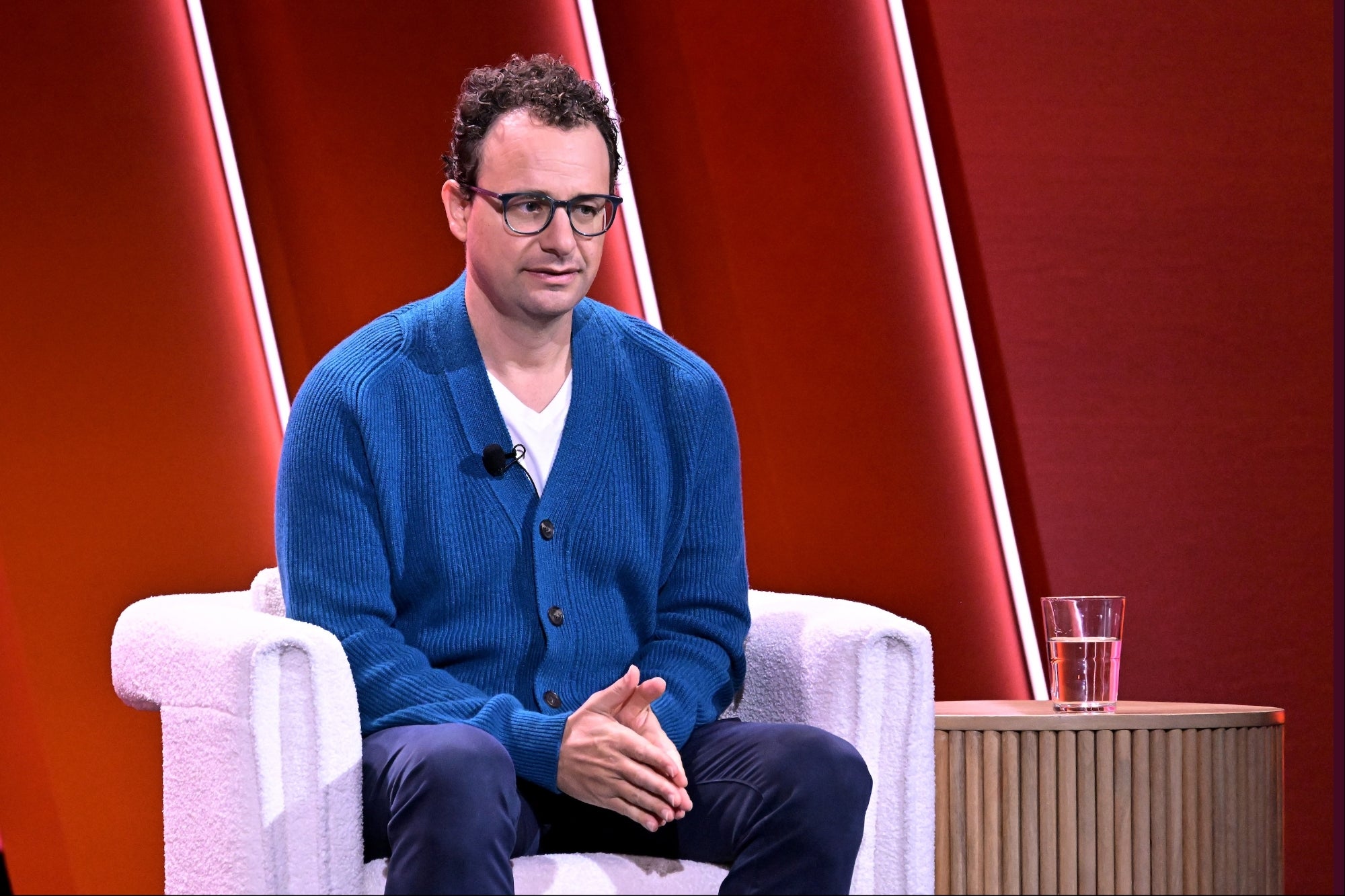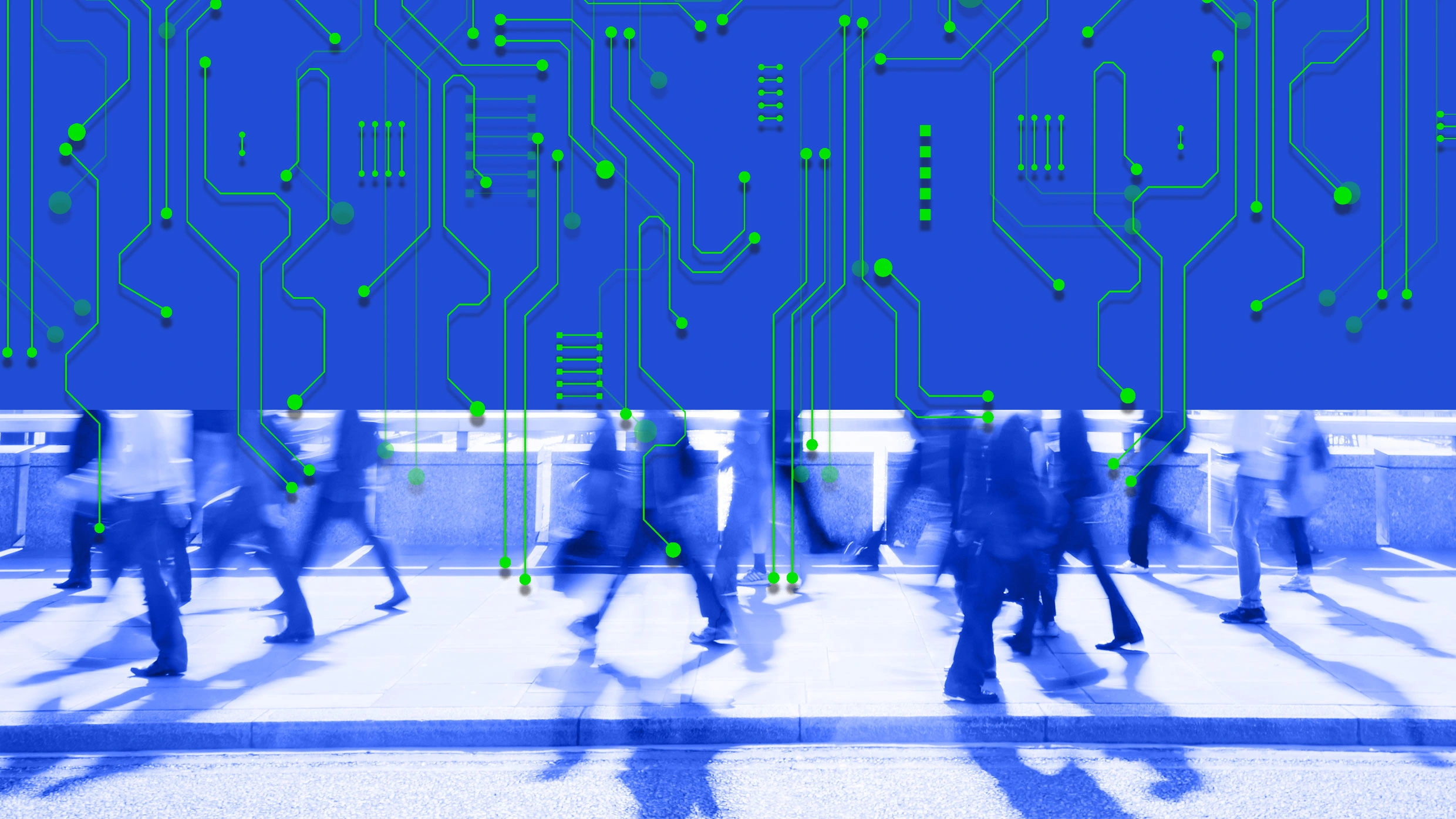#ai-job-displacement
#ai-job-displacement
[ follow ]
fromSocial Media Examiner
17 hours agoWill AI Take Your Marketing Job? Here's What Two AI Experts Are Seeing : Social Media Examiner
The research shows that for early-career marketing professionals aged twenty-two to twenty-five, AI has caused a net loss of approximately twenty percent of headcount in sales and marketing roles. The effect decreases as seniority increases, but there's an overall deflection across the field since January when everyone figured out ChatGPT existed.
Marketing
Artificial intelligence
fromFortune
18 hours agoMorgan Stanley predicts AI won't let you retire early: Instead, you'll have to train for jobs that don't exist yet | Fortune
Historical technological disruptions have not permanently eliminated jobs; workers transition to new roles, many not yet created, despite AI automation concerns.
fromFortune
1 day agoJamie Dimon says society should start preparing for AI job displacement: 'Now's the time to start thinking about' it | Fortune
I'm not predicting [it] can be a problem. I'm simply saying now's the time to start thinking about what you do if it does. Though Dimon's remarks were characteristically blunt, he iterated, JPMorgan wasn't going to put its head in the sand when it comes to AI transformation. To the contrary, he said, the bank is deploying AI aggressively and already has an LLM model that 150,000 people use every week.
Artificial intelligence
fromFortune
1 day agoEx-presidential candidate Andrew Yang warns that millions of white-collar workers will lose their jobs within 18 months: 'The AI jobpocalypse is here' | Fortune
I believe that millions of white-collar workers are going to lose their jobs in the next 12 to 18 months due to AI. AI is now able to do the work of a very, very smart human in minutes or even seconds. This is going to displace marketers, coders, designers, lawyers, accountants, call center workers-you name it.
Artificial intelligence
fromNature
1 week agoAI is threatening science jobs. Which ones are most at risk?
Many of them say that AI's ascendance is already reducing demand for human researchers who can write code or do basic data analysis - tasks often handled by graduate students, postdocs or those without graduate training. Obsolescence of some basic roles in areas such as computer modelling "is not even in the future. It's happening now," says Xuanhe Zhao, a mechanical engineer at the Massachusetts Institute of Technology in Cambridge, because "AI is doing this much better than entry-level scientists".
Artificial intelligence
fromFortune
1 week agoBrian Moynihan isn't so worried about an AI jobs bloodbath, pointing to a 1960s theory that computers would end all management roles | Fortune
"The example I use-and whether it will be now or not, we'll find out in the future-is in 1969, there were 80 million people working in the United States. In 2019, there were 160 million people. Think about the amount of technology that applied in America from that time, to 2019. "People wrote ... in 1969 that there would be no managers left in business because the computer itself would eliminate the need for managers, because they just moved information.
Artificial intelligence
fromFuturism
2 weeks agoAnthropic Researcher Quits in Cryptic Public Letter
"Throughout my time here, I've repeatedly seen how hard it is to truly let our values govern our actions," Sharma said, claiming that employees "constantly face pressures to set aside what matters most."
Artificial intelligence
fromFortune
3 weeks agoIf AI is roiling the job market, the data isn't showing it, Yale Budget Lab report says, raising questions of 'AI-washing' to justify mass layoffs | Fortune
Anxieties about AI putting people out of jobs is bubbling over: A Reuters/Ipsos poll from August 2025 found 71% of Americans feared permanent job loss as a result of AI. Last week, Amazon announced 16,000 roles across the company would be slashed, adding to a total of more than 30,000 job cuts since October 2025. The move coincided with Amazon's push toward AI development, though the tech giant attributed the reductions to an attempt to slash bureaucracy, not the technology.
Artificial intelligence
fromFortune
1 month ago'Godfather of AI' Geoffrey Hinton predicts 2026 will see the technology get even better and gain the ability to 'replace many other jobs' | Fortune
"I think we're going to see AI get even better," Hinton replied. "It's already extremely good. We're going to see it having the capabilities to replace many, many jobs. It's already able to replace jobs in call centers, but it's going to be able to replace many other jobs."
Artificial intelligence
Artificial intelligence
fromFortune
2 months agoThe scientist that helped create AI says it's only 'a matter of time' before every single job is wiped out-even trade jobs like plumbing | Fortune
AI is already replacing cognitive desk jobs and will increasingly displace a wide range of roles, likely impacting most jobs within five years.
fromIT Pro
3 months agoThe UK is dealing with a 'substantial' shortfall in digital skills - and up to three million jobs as businesses ramp up automation
Up to three million UK jobs could be lost to AI over the next ten years, according to the National Foundation For Educational Research (NFER), prompting calls for widespread reskilling programs. In a new , the foundation said that roles in at-risk occupations such as administration, secretarial services, customer service, and machine operations are declining at a much faster rate than previously predicted. While the number of jobs in the labor market as a whole is actually expected to grow by 2035, the study found most growth will be in occupations such as science, engineering, and legal roles.
Education
fromwww.independent.co.uk
3 months agoWomen twice as likely to lose jobs to AI' amid warning they could get left behind
Women are being warned they could get left behind by advancements in technology after a study revealed they are twice as likely to hold jobs under threat from AI. The findings showed that female-dominated roles, such as administration, bookkeeping, cashiers, and office staff, are more vulnerable to job loss as a result of automation. To compound the issue, women were also found to be 20 per cent less likely to engage with generative AI tools than men,
Women
Artificial intelligence
fromBusiness Insider
3 months agoThe godfather of AI doesn't think CEOs have thought about one big thing that could happen if AI kills most jobs
AI will likely eliminate more jobs than it creates, and CEOs have not adequately considered resulting mass unemployment's impact on consumer demand and social disruption.
Artificial intelligence
fromFuturism
3 months agoThe AI Industry Can't Profit Unless It Replaces Human Jobs, Warns Man Who Helped Create It
Current-form AI deployment will likely cause massive job displacement as companies replace paid human labor to cut costs and drive profits, risking economic dystopia.
Artificial intelligence
fromwww.theguardian.com
4 months agoJoke's on you, fleshbag! Channel 4's first AI presenter is dizzyingly grim on so many levels
AI threatens millions of jobs, putting many professions at high risk, while media increasingly uses convincing AI-generated presenters that blur human authenticity.
fromFuturism
4 months agoSAP Exec: Get Ready to Be Fired Because of AI
Asam is one of many businesses executives who've been startlingly candid about their intentions to displace human labor with AI tools or agents. From their point of view, you can directly replace your overpaid, calling-in-sick grunts with ever-dependable AI agents. Or you can whittle your workforce down to a skeleton crew that are super efficient thanks to the magical abilities of AI.
Artificial intelligence
Artificial intelligence
fromBusiness Insider
5 months agoAnthropic cofounders say the likelihood of AI replacing human jobs is so high that they needed to warn the world about it
AI could eliminate large numbers of human jobs, potentially half of entry-level white-collar roles within five years, requiring policy responses for major economic disruption.
fromSlate Magazine
5 months agoMy Career Is About to Be Cut Short. I Know Exactly Who to Blame.
Two decades ago, I took my liberal arts degree(s) and got an entry-level job at a solid healthcare company and have moved up to the point where I think I've reached my max potential. I am punching above my weight in my current role. I believe that AI will kill my role in the next 12 months, and I do not believe my age and skillset will make me competitive in today's job market.
Real estate
fromWIRED
5 months agoWIRED Roundup: Meta's AI Brain Drain
In today's episode, our host Zoë Schiffer is joined by WIRED's senior politics editor Leah Feiger to run through five of this week's best stories-from how AI is eliminating entry level jobs to why a secretive Democrat group is funding high-profile influencers. Then, Zoë and Leah dive into the scoop that AI researchers recently recruited to Meta Superintelligence Labs are already leaving-with some heading back to OpenAI.
Artificial intelligence
Healthcare
fromFortune
5 months agoGen Z are eyeing up 'secure' healthcare jobs to AI-proof their careers, but be warned: chiropractors, doctors and paramedics are the unhappiest workers
Many Gen Zers seek healthcare careers for security, yet healthcare roles report high unhappiness and burnout while service workers report greater satisfaction and wage growth.
fromSFGATE
6 months agoAI is already hitting young workers hard, Stanford researchers say
In a paper released Tuesday, Brynjolfsson and two other Stanford researchers gave the AI and work discourse some much-needed clarity. Using a massive and recent trove of data, they showed that 22- to 25-year-olds in fields that are particularly exposed to AI are, indeed, having a harder time getting work than their older or less exposed counterparts. The paper dubs this cohort the "canaries in the coal mine" - potential harbingers of larger impacts if AI tools continue to improve.
Artificial intelligence
fromFortune
6 months agoAI is gutting workforces-but an ex-Google exec says CEOs are too busy 'celebrating' their efficiency gains to see they're next
My belief is it is 100% crap. The best at any job will remain. The best software developer, the one that really knows architecture, knows technology, and so on will stay—for a while.
Artificial intelligence
fromBusiness Insider
7 months agoFord's CEO is the latest exec to warn that AI will wipe out half of white-collar jobs
"Artificial intelligence is going to replace literally half of all white-collar workers in the US," Farley said. That's why, he said, more people are looking to the skilled trades.
Tech industry
[ Load more ]




